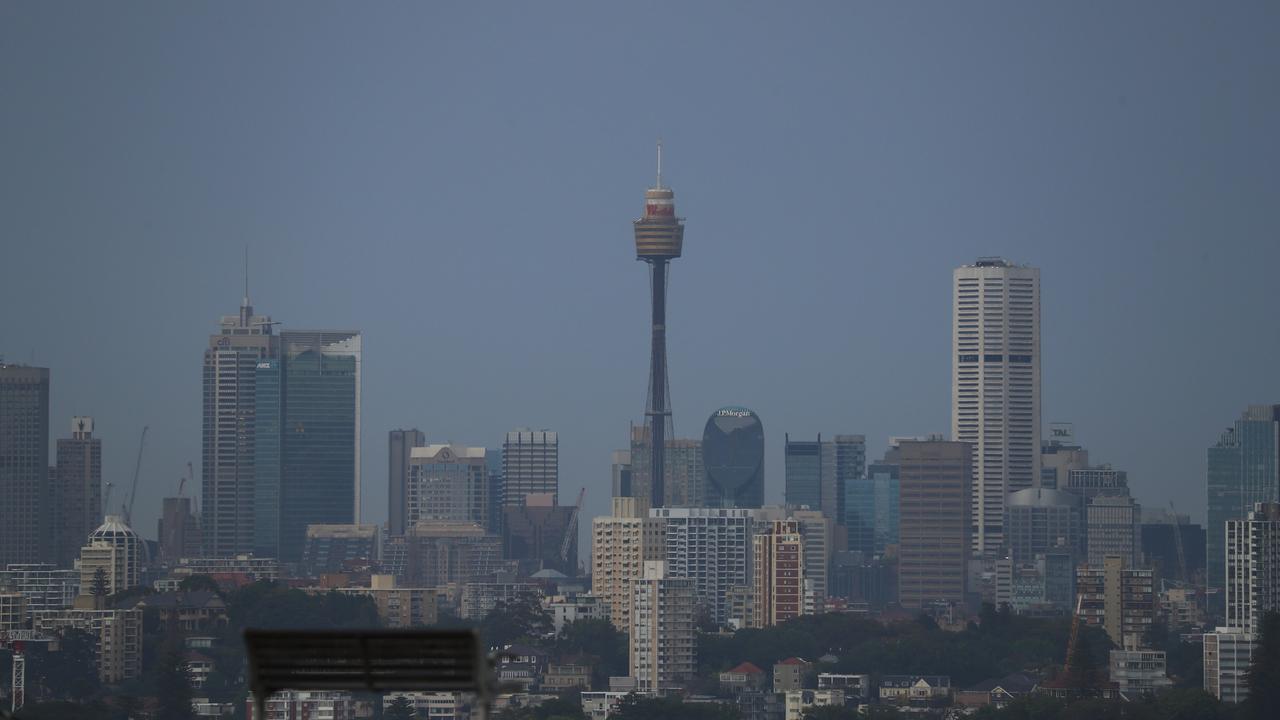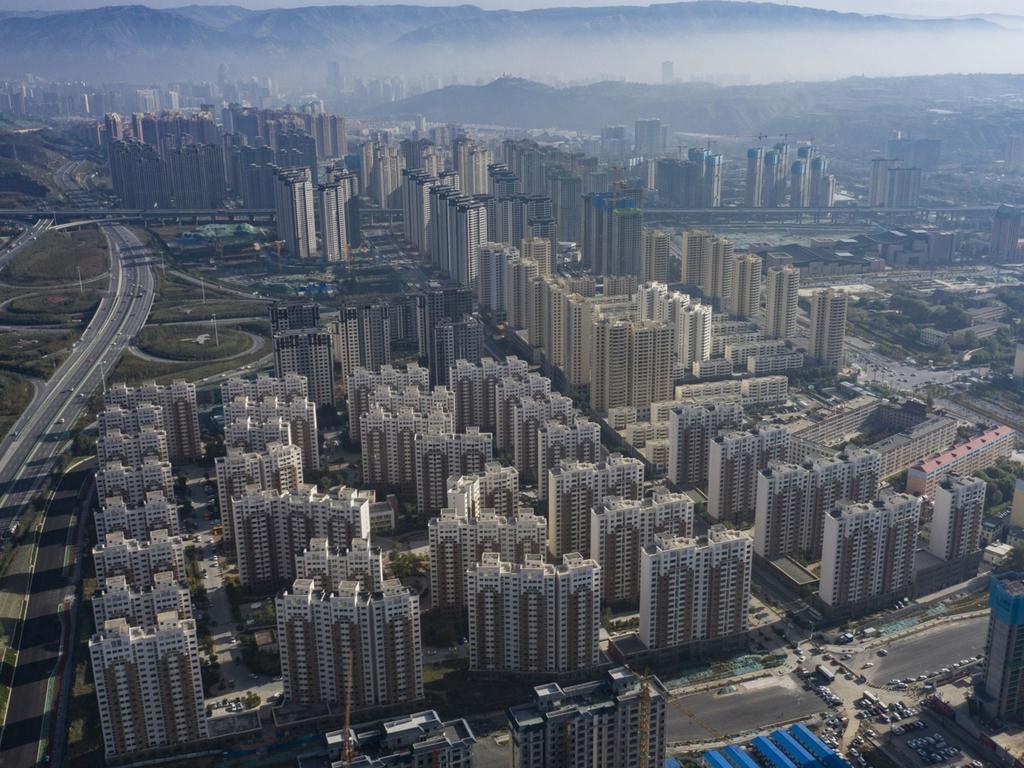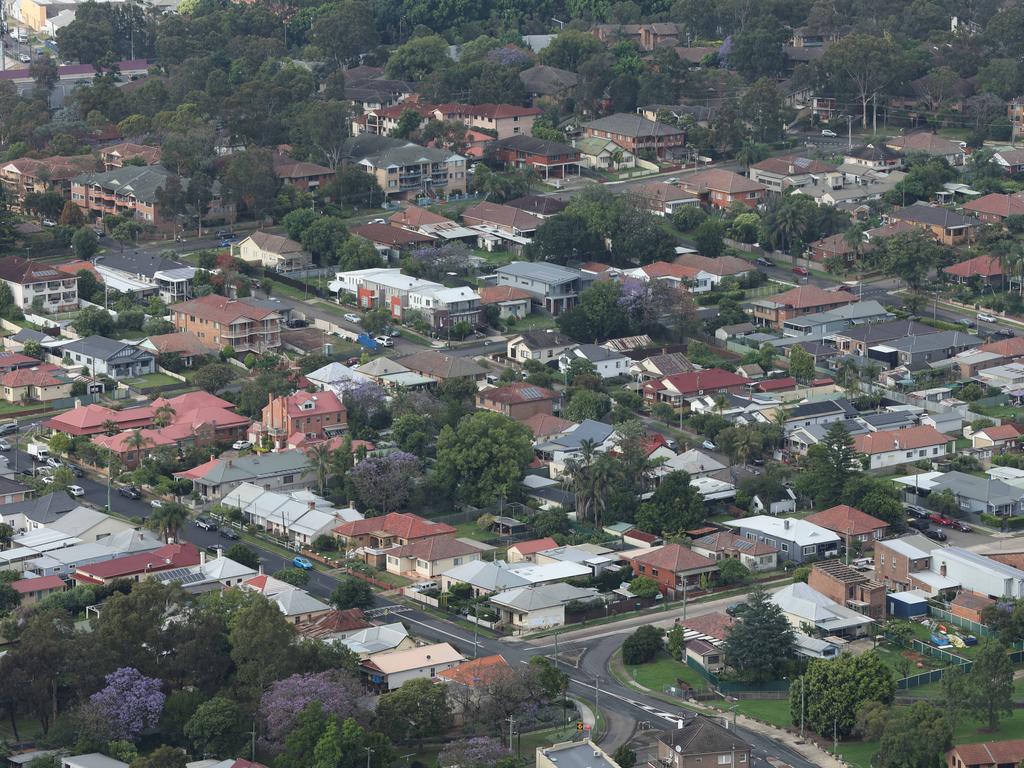‘Another lost decade’: What Evergrande’s collapse means for Australia
The collapse of Chinese giant Evergrande could start a chain reaction that leads to a disastrous “lost decade” for Australia.

The collapse of Chinese property giant Evergrande may kick off another “lost decade” for Australia, marked by stagnant wage growth, a falling Aussie dollar, budget deficits and tax increases.
But rather than a Lehman Brothers-style financial contagion, Evergrande’s default instead marks a major structural adjustment to the Chinese economy, experts say. It is likely to lead to a restructuring that will see foreign investors hit hard but domestic lenders, customers and suppliers protected to a degree.
In Australia, the biggest loser will be our iron ore exports, which brought in $149 billion last financial year.
“The good news is you’re not going to have an acute crisis, but the longer-term trade-off is very bad, because you’re going to have a chronic wind-down in all the commodity demand that matters to Australia,” said David Llewellyn-Smith, chief strategist at MB Fund and founding publisher of MacroBusiness.
“Iron ore and coking coal are the two obvious ones, but other metals as well that are very in demand in that sector such as copper, some nickel, things like that. China has built an enormous steel sector in part to service this construction economy that was a one-off.”
AMP Capital chief economist Dr Shane Oliver agreed that the property-fuelled Chinese growth phase had “run its course”, but he was not as pessimistic about the implications for Australia.
“If Chinese property grinds to a halt that’s a huge negative for Australia, but that seems unlikely to me,” he said.
Rather than a “dead stop”, he predicts a longer-term fall in demand for Australian commodities to fuel the construction industry will be partially taken up by the need for some of the same materials in green energy technologies.
“The world is moving to decarbonise, which means masses of demand for other commodities Australia produces such as copper and other metals,” he said.
Evergrande officially in default
Evergrande, the world’s most indebted property developer with liabilities of more than $US300 billion ($A420 billion), was officially declared in default by ratings agency Fitch overnight after missing a key overseas bond interest payment this week.
At least 10 smaller, but still sizeable Chinese property developers have defaulted on bond payments since the summer.
It comes amid a broader squeeze by Beijing on the country’s out-of-control property market.
President Xi Jinping last year introduced a new set of rules, known as the “three red lines”, defining strict borrowing limits in a bid to rein in the sector’s ballooning debt.

While Chinese authorities are taking steps to soften the blow domestically – the People’s Bank of China has sought to curb the currency by raising the required ratio on bank foreign exchange holdings, but has declined to raise interest rates – the three red lines policy, which has largely driven the deleveraging, remains intact.
“So in other words they’re doing it on purpose,” Mr Llewellyn-Smith said.
He described it as a “managed process” rather than a market panic.
“We know that because Chinese policymakers are doing only just enough to keep it going without it turning into a major economic accident. The fact they’ve let Evergrande go under is the ultimate evidence they want it to go under – they want all of their Evergrandes to go under, because they want to stop overbuilding in the economy.”
He added Beijing knew that letting the property sector run was “simply setting themselves up for a much bigger accident in the not-too-distant future”.
A 2020 study authored by Harvard economist Kenneth Rogoff and Beijing Tsinghua University economist Yuanchen Yang found that real estate related activities accounted for 28.7 per cent of Chinese GDP in 2016.
Dr Oliver pointed out that Evergrande had only defaulted on its offshore debt, which was only about 10 per cent of its total, and domestically the company only accounted for about 0.1 per cent of total bank lending.
“Chinese authorities probably won’t allow it to default on its debt to domestic Chinese borrowers, and I think they’ll try to protect customers and suppliers,” he said.
“I don’t think the Chinese authorities are prepared to let this cause a collapse in the Chinese economy. It looks to me like foreign investors will take a bit of a bath, which is bad for them but not debilitating for the global economy.”
Future of Australia-China trade relations
Australia has been hit with brutal trade sanctions by China over the past 18 months on some $20 billion worth of exports ranging from wine and lobsters to barley and cotton.
But overall dollar value in trade remained largely unaffected, as China continued to buy record amounts of iron ore and liquefied natural gas at record prices.
A major restructuring of China’s economy will put an end that grace period.

“Letting Evergrande go under in this managed process is an exemplar of their determination to slow their economy permanently in the areas most important to Australia,” Mr Llewellyn-Smith said.
“It appears the base case is we’ll avoid a Lehman-style crisis, but instead China will become like Greece for Europe after the GFC, it’ll be restructured permanently. It’s therefore a structural challenge to the Australian economy.”
Challenges ahead for Aussie economy
The loss of billions of dollars in commodity income will wipe out Australia’s current trade surpluses and current account surpluses.
That’s bad news long-term for the Aussie dollar.
“It will be a huge hit to nominal growth,” Mr Llewellyn-Smith said.
“It will weigh very heavily on incomes, it’ll be very difficult to get wage rises, the budget will get hammered, you face the possibility of tax hikes to try to substitute for falling corporate revenue. It doesn’t have to be a catastrophe, but it means another lost decade. Most likely it will be another decade of bleeding out of living standards, which is what we faced after the last commodity crash.”
The Australian property market will be largely unaffected, however.
Interest rates, which have been at record lows for years and had been tipped to rise some time in 2022, are likely to remain steady in this scenario.
Pete Wargent, co-founder of buyer’s agent network BuyersBuyers, said domestic factors tended to be the key driver for the housing market, and that the impact of Evergrande’s collapse on local sentiment was “not zero, but it’s pretty close”.
He said the prospect of record low interest rates for even longer could spur more activity in the market.
There are now record numbers of scheduled auctions and listings have surged again in Sydney and Melbourne.
Mr Wargent suggested buyers were taking advantage of the “window of opportunity” before immigration picks up again.
“People are thinking they want to get something bought before 200,000 visa holders show up,” he said.






